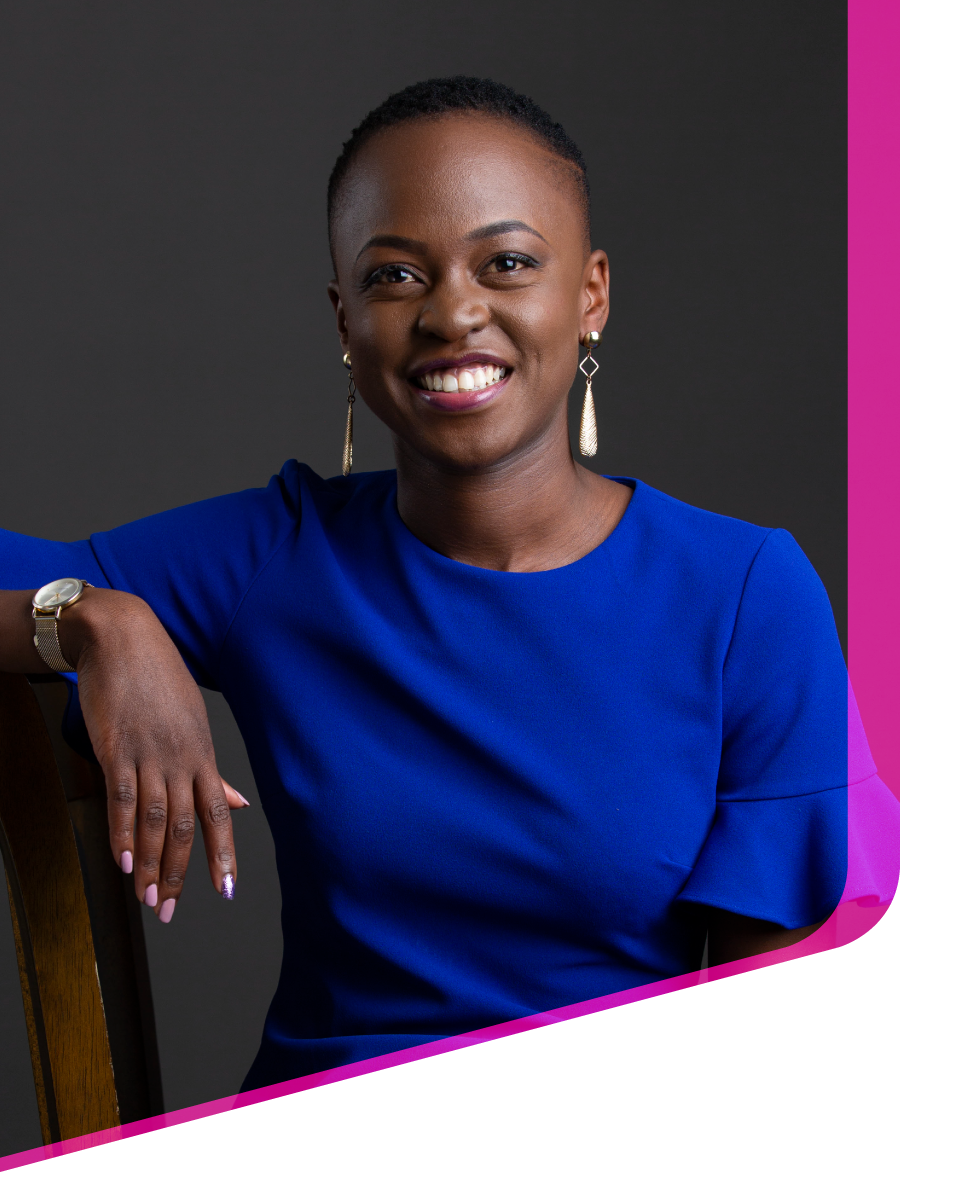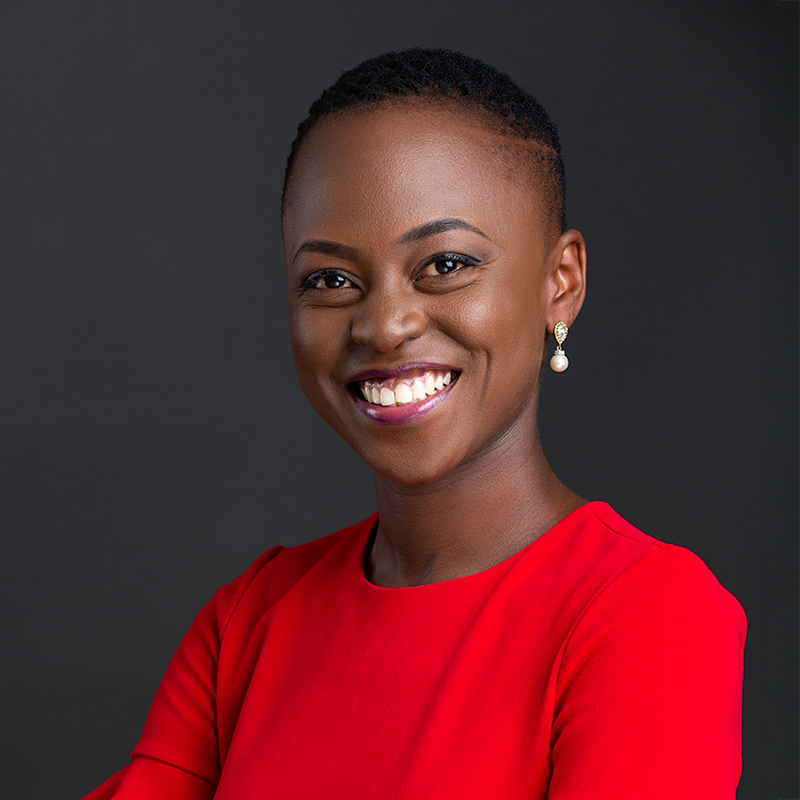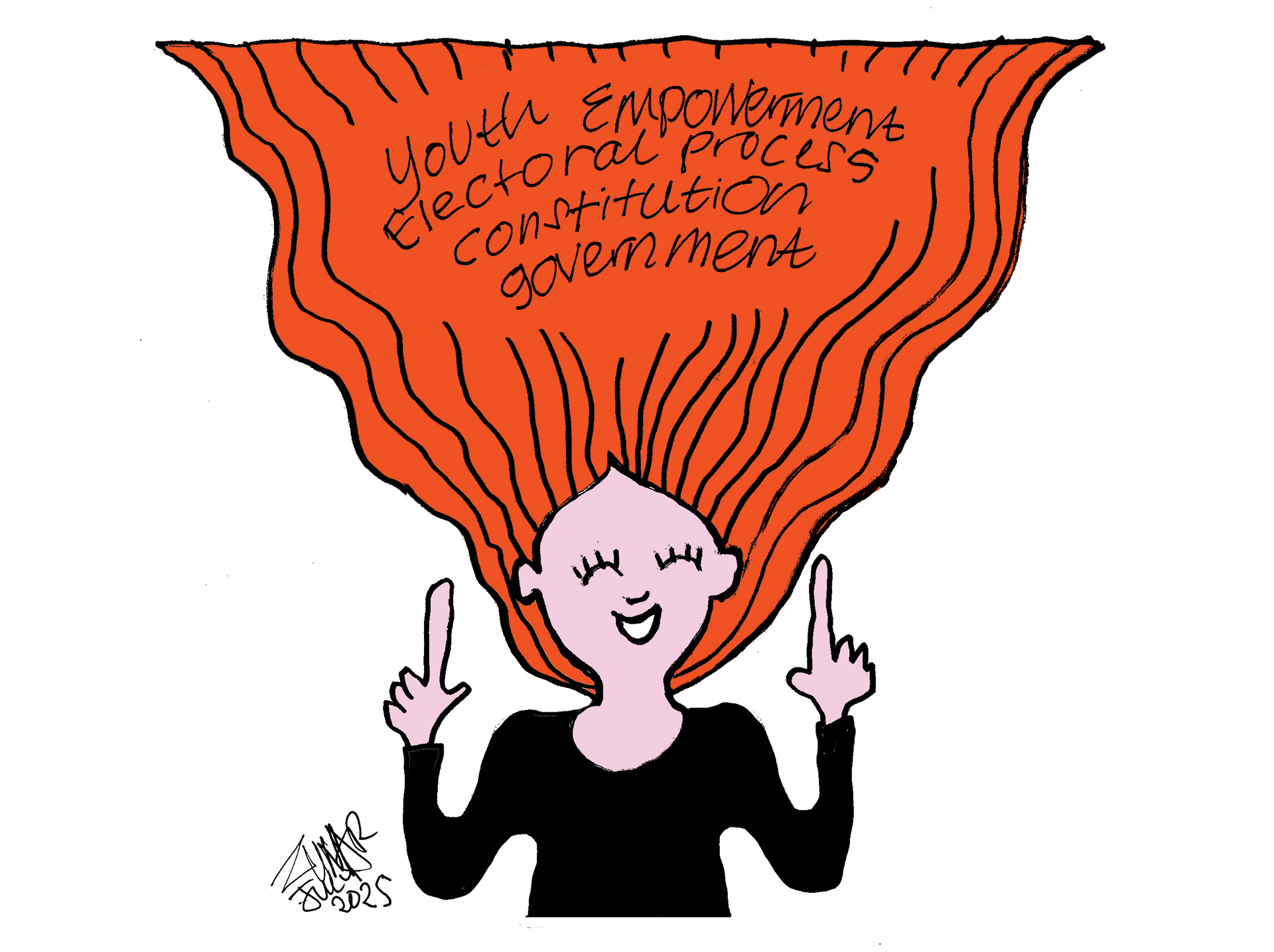
Kenya
Kenya
Kenya
Nerima Wako
Nerima Wako
Nerima Wako
Executive Director of Siasa Place (SP)
Executive Director of Siasa Place (SP)
Executive Director of Siasa Place (SP)

Kenya
Nerima Wako
Executive Director of Siasa Place (SP)
“I just felt such a strong sense of care for my country. I knew I had to do something about how young people engage with politics and governance.”

VITA
Nerima is the Executive Director of Siasa Place (SP), a Kenya-based civic-tech organization that is both youth-led and youth-focused. Committed to inclusive governance, she leads SP’s mission to empower young people to meaningfully participate in political and civic life. “Siasa,” the Kiswahili word for politics, underscores the organization’s belief in youth as active agents of change in democratic processes. Under her leadership, SP has equipped thousands of youths with the skills, confidence, and platforms necessary for engagement in public decision-making. The organization has directly worked with over 8,000 young people and executed more than 180 digital campaigns, reaching over 131 million online impressions. SP is also at the forefront of advocating for dignified working conditions within Kenya’s growing digital economy. Nerima holds a Bachelor of Arts in Journalism and Sociology from Jacksonville State University (2010) and a Master of Public Administration (2012). She combines her academic background and professional leadership experience to bridge the gap between young citizens and governance, ensuring that technology serves as a tool for voice, dignity, and accountability.
From afar, she discovered the importance of working with young people.
At just twenty-four, the political unrest in Burundi in 2012 lit a fire in Nerima Wako-Ojiwa. From afar, she watched as dissenters were punished and democracy was crumbling. It was not just the crackdowns or forced recruitment of youth into militias that disturbed her; it was more personal. “I couldn’t stop thinking about Kenya,” she says. “I just felt such a strong sense of care for my country. I knew I had to do something about how young people engage with politics and governance.” After seven years abroad, Nerima returned to Kenya with a renewed sense of purpose and a mission: to bridge the divide between young people and political processes. She had left the country as a teenager to earn a degree in journalism and sociology, along with a master’s degree in public administration. By age 19, she was waitressing, tutoring, and working as a resident assistant to make ends meet. “Those jobs taught me how systems work, how to solve problems, and the importance of showing up, even when it’s hard.”
After graduate school, Nerima joined Search for Common Ground as an intern and quickly climbed the ranks to become director of the organization’s newly opened Kenya office by the age of 25. “That journey gave me a full understanding of how an organization functions – from finance and admin to programming. That’s what gave me the courage to build one of my own.” In 2015, she founded Siasa Place, a youth-led civic tech organization that educates young Kenyans about the constitution, governance, and public participation. Its mission is to promote human rights, the rule of law, and government accountability while pushing back against authoritarianism and systemic corruption.
Building Siasa Place was no easy feat. The name "Siasa" (politics) triggered suspicions.
Government officials suggested that they register as an association rather than as a non-governmental organization. “People thought we were starting a political party,” she says. “They didn’t understand why young people wanted to register an NGO.” Early operations were built on sacrifice. Nerima poured her savings and consulting earnings into the organization for three years and spent weekends drafting proposals while her peers socialized. Her efforts bore fruit.
Today, Siasa Place is one of Kenya’s most respected youth-driven civic platforms. It gives a voice to the often-ignored youth in governance debates, educates rural and urban communities about their rights, and champions inclusive, participatory democracy. From the outset, the organization was anchored in principles of accountability, constitutionalism, and innovation. These values helped Siasa Place refine its audience and grow a formidable digital presence, particularly on platforms like Facebook and X (formerly Twitter). Through the popular hashtag #SiasaWednesdays, it hosted weekly conversations on emerging governance issues, often revealing entrenched ageism in politics and the political elite being wary of youth-led change. Running an NGO in Kenya today comes with its own complications. “There’s a lot of confusion,” Nerima notes. Civil society organizations, once governed clearly under NGO regulations, are now being pushed to transition into Public Benefit Organizations (PBOs), but the process is murky. “Earlier, the requirements were clear. Now we’re in this bureaucratic limbo.”

More broadly, she sees a country struggling with deep institutional mistrust. “People want accountability.
But they do not know where to go. They feel helpless.” Now, young Kenyans are demanding accountability in the streets and online, proving that what seemed like idealism is a political force. “The protest may have looked spontaneous, but its roots run deep,” Nerima reflects. “We warned them back in 2016,” she says. “We told the Senate to treat social media feedback as legitimate, to explore blockchain for public participation. They laughed.”
The work is not without danger. “I’ve never been arrested,” she says. “I’m a fast runner – that’s my survival strategy.” Still, her car bears scars from multiple suspicious ‘accidents’. “It’s terrifying - you can’t even tell what a real accident is anymore.” One of the worst was in Nairobi’s central business district when a car rammed into hers. Reporting it felt more dangerous than staying silent. “I might not have walked out of that police station.” Years of protest, courtrooms, and threats accumulate into something deeper: trauma. “I’ve lost fear of the police,” she says. “I recently found myself screaming at officers arresting Julius [a fellow human rights defender]. They just stared at me, baffled by my lack of fear.”
The threats extend to the digital space.
Her organization’s website is frequently hacked. She receives anonymous messages claiming that her phone is being monitored. “Someone once texted me: ‘Your WhatsApp isn’t safe. We see everything.’ She switched devices – not by choice, but for security. Still, Nerima pushes on for stronger legal protections for activists, an end to impunity, and increased international solidarity. Her commitment remains clear: to educate and to empower young Kenyans and remind them that their voices matter.
From her childhood in Nairobi to the protests in the streets, from boardrooms to community halls, Nerima embodies a generation of African civic actors determined not just to survive, but to transform their countries. In her own words, she often quotes Thomas Sankara: “It takes a few madmen to invent the future.” In a nation where youth are routinely sidelined, she has built an institution that proves otherwise, not through protest alone, but by equipping young Kenyans to claim their rightful place in upholding their rights.
Kenya
